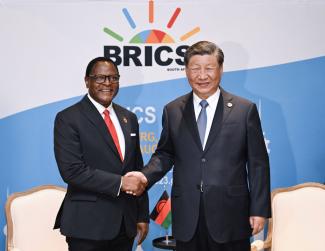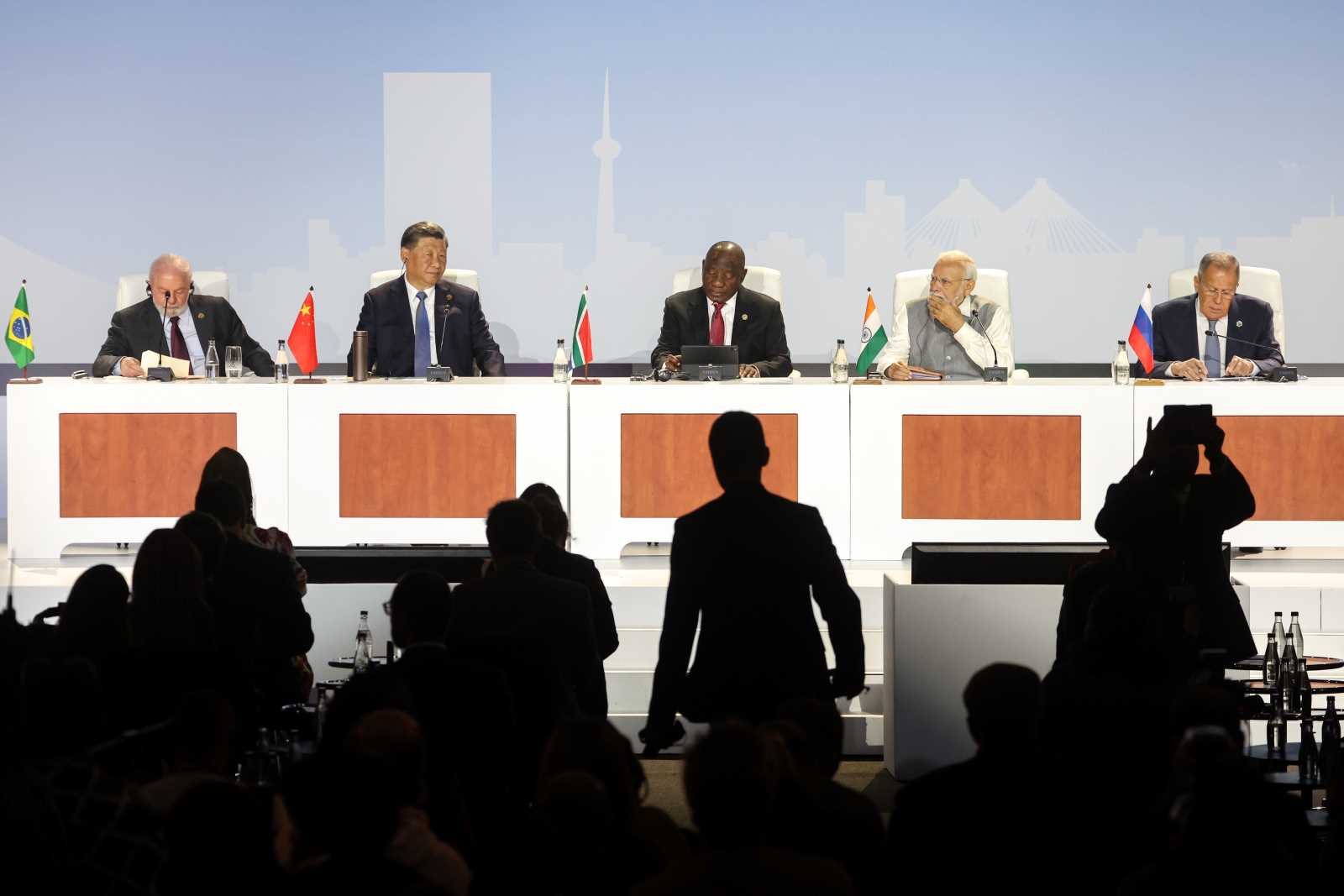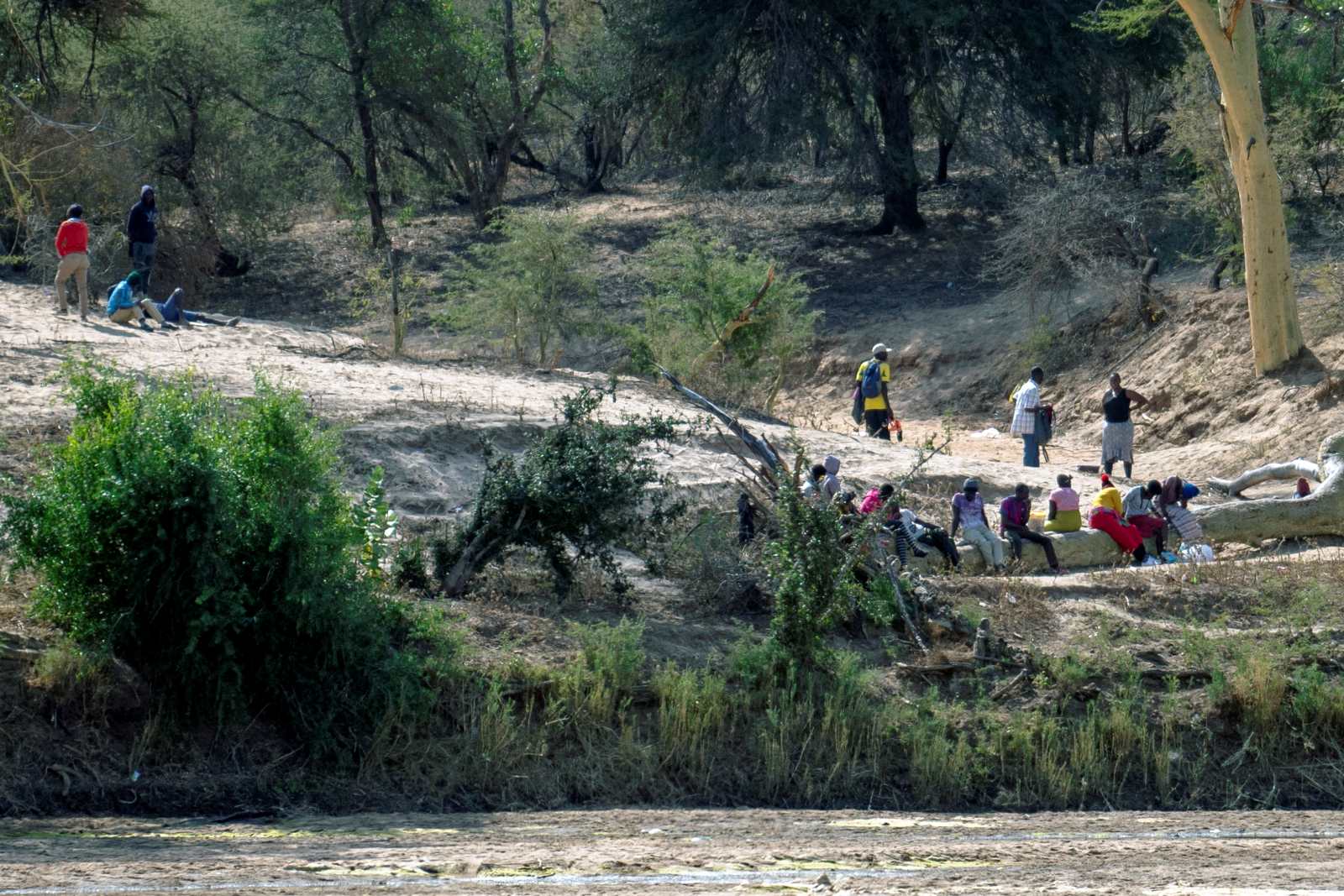Southern Africa
Why Africa is caught between two stools with BRICS

When Malawi’s President Lazarus Chakwera attended the 15th BRICS Summit in South Africa last August, he expressed Malawi’s determination to work with the bloc to “confront the barriers that previously denied Africa a stake in global prosperity.” Chakwera said: “We need to reboot the system. We need to reboot it now. And we are here to help BRICS nations design the software.”
Cooperation between the BRICS and Africa is becoming increasingly important. Last year, Ethiopia and Egypt, along with other countries, were officially accepted into the bloc of major emerging economies now named BRICS+.
Since their foundation in 2009, the BRICS (Brazil, Russia, India, China and South Africa) have positioned themselves as “the voice of the global south”. China in particular has presented itself as an important partner for developing countries, especially in Africa.
However, critics consider China’s relationship with Africa as exploitative and mainly beneficial to the Asian country. China is confronted with accusations of human-rights violations when Chinese companies operate in the mining or construction sectors in Africa, for example. At the same time, China has saddled the continent’s countries with unsustainable debts.
“Modern Slavery”
Relations between Malawi and China date back to 2008, when the southern African country cut its 41-year diplomatic ties with Taiwan. Since then, China has supported infrastructure projects in Malawi, such as the parliament building, the Bingu National Stadium, the Bingu International Conference Centre and the Malawi University of Science and Technology.
Like many African countries, Malawi is under pressure from constantly rising and unsustainably managed public debt. According to a mid-year public debt report published by the country’s Ministry of Finance in November last year, Malawi owed the International Monetary Fund, the European Investment Bank and the World Bank’s International Development Organisation a total of almost $ 2 billion. The Export-Import Bank of China and the Export-Import Bank of India were owed a total of $ 306 million. The private sector had a domestic debt of around $ 35.2 million.
A 2020 Afrobarometer survey conducted by the University of Malawi’s Centre for Social Research found that many Malawians believe their country has borrowed too much from China. While some recognise the benefits of Chinese loans for infrastructure development, there are concerns about the long-term impact. One business journalist, who asked not to be named, likened the debt to “modern slavery”.
In this context, Malawi’s president emphasised at the BRICS summit in South Africa last year that talks on debt restructuring with China – and India – were high on the agenda. In March, Malawi’s finance minister Simplex Chithyola Banda said Malawi was on track in debt restructuring negotiations with its bilateral and commercial creditors. He said the country had so far received assurances from the governments of China and India about their intention to restructure debt. However, China is a particularly tough creditor in debt negotiations, as others have reported in D+C/E+Z.
The business journalist commented: “Although restructuring can extend the repayment periods, it does not relieve the country of its debt, which may divert resources away from important development initiatives in the long term.”
South African influence
Like most African countries, especially in the Southern African Development Community (SADC), Malawi is not only dealing with China from the BRICS countries, but above all with South Africa. Although the country, which has been a member of BRICS since 2010, is the smallest of the five original players in the alliance, it offers the bloc access to the African market as a regional economic power. In Southern Africa in particular, the country’s economic and political strength is undeniable. The countries in the region therefore hope to benefit from improved market access in South Africa and attract foreign direct investment.
There is also significant migration to South Africa within the region. Currently, there are an estimated 100,000 Malawian migrant workers in the BRICS country, driven there by low incomes at home – even if many of them still work in the informal sector. Citizens are also flocking to South Africa from other countries in the region.
Patrick Kambewa, Associate Professor of Economics at the University of Malawi (UNIMA), believes that South Africa’s influence on Malawi is enormous. “Whatever happens in South Africa has an impact on us,” said Kambewa. “When South Africa went into lockdown during the Covid-19 pandemic, we were greatly affected as a country.” He therefore believes that whatever agreements South Africa reaches with other BRICS members “will always have an impact on Malawi”.
However, Kambewa points to the dilemma facing Malawi – and other African countries: It is uncertain what consequences increasing involvement with the BRICS will have for the relationship with western nations and their powerful institutions. “BRICS presents itself as a rival group to the west, but Malawi’s debt is actually mainly to western institutions. The country is therefore unsure whether to join either side”, says Kambewa.
Geoffrey Mzumara is not the author’s real name.
euz.editor@dandc.eu









